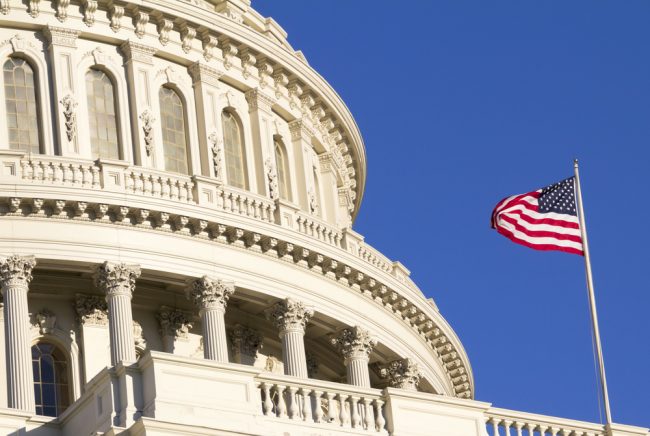 The U.S. Capitol building. (Photo: Shutterstock)
The U.S. Capitol building. (Photo: Shutterstock)
The House passed its version of the annual defense authorization legislation last week and the measure now goes to a conference committee, where the issue of whether banks and credit unions should receive free benefits on military bases is a tiny one, but extremely important to the institutions involved.
The House version of the massive defense bill does not include a provision that would provide banks with the same free rent benefit that credit unions now receive.
Recommended For You
However, the Senate bill includes that provision, meaning that the issue must be resolved in conference.
"Credit unions' have a legacy of more than 70 years of service to military members and their families," CUNA President/CEO Jim Nussle said, following House passage of the bill. "We look forward to engaging further as this bill goes to conference committee to ensure the final version is free of any language that would change the DOD's current exemption authority."
NAFCU Vice President of Legislative Affairs has sent a message to defense credit unions following the vote, reminding them of the trade group's staunch opposition to providing banks with the same benefits as credit unions.
The Association of Military Banks of America has been pushing for the benefit, saying that providing banks with free rent would simply level the playing field.
Last year, the two sides thought they had hammered out compromise language, but credit union trade groups said a drafting error could have resulted in credit unions losing their access to military bases.
As a result, any compromise fell apart.
The defense bill has other, larger problems. The Office of Management and Budget has said that the president senior advisors would recommend he veto any bill that contains funding levels in the House bill and because it would restrict him in efforts to spend defense money on a wall on the U.S. southern border.
© Touchpoint Markets, All Rights Reserved. Request academic re-use from www.copyright.com. All other uses, submit a request to [email protected]. For more inforrmation visit Asset & Logo Licensing.






